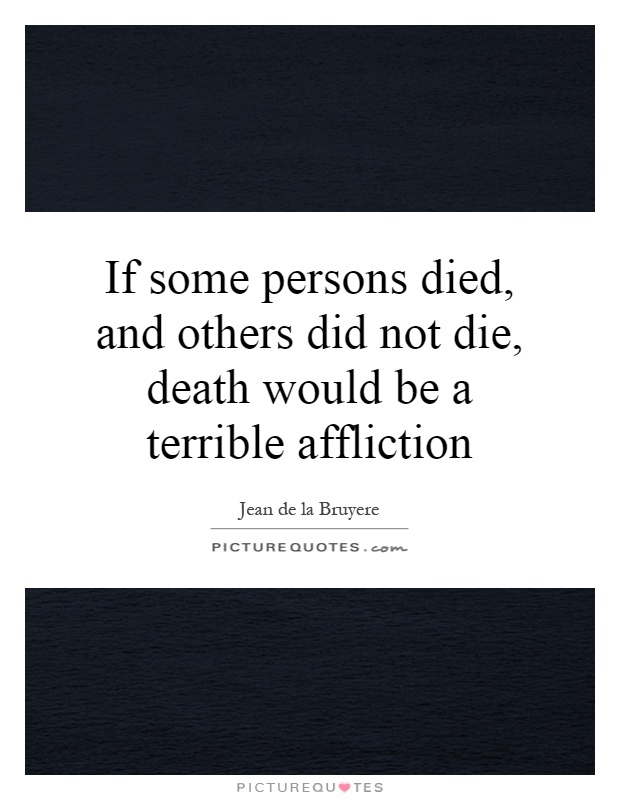If some persons died, and others did not die, death would be a terrible affliction

Died Person QuotesPerson Died QuotesTerrible Person QuotesDeath And Dying QuotesJean De La Bruyere Quotes
If some persons died, and others did not die, death would be a terrible affliction
Jean de La Bruyère was a French philosopher and moralist known for his keen observations on human nature and society. In his work, he often delved into the complexities of life and death, exploring the impact of mortality on individuals and society as a whole. The statement, "If some persons died, and others did not die, death would be a terrible affliction," reflects La Bruyère's contemplation on the inevitability of death and its profound effects on the living.La Bruyère understood that death is a universal experience that touches every individual at some point in their lives. However, he also recognized that the loss of loved ones can be particularly devastating for those left behind. The idea that death would be a terrible affliction if it only affected some people speaks to the profound sense of loss and grief that accompanies the passing of a loved one. In a world where death is selective, those who are spared would be left to grapple with the guilt and survivor's remorse of outliving their friends and family.
Furthermore, La Bruyère's statement highlights the interconnectedness of human relationships and the impact of death on the fabric of society. When individuals die, they leave behind a void that cannot be easily filled. The loss of their presence, wisdom, and companionship can have far-reaching consequences, affecting not only their immediate circle of family and friends but also the broader community. If death were to selectively target certain individuals, the social and emotional repercussions would be profound, leading to a sense of collective mourning and despair.
Ultimately, La Bruyère's reflection on the affliction of death serves as a reminder of the fragility of life and the importance of cherishing the time we have with our loved ones. By acknowledging the pain and sorrow that death brings, we can better appreciate the beauty and preciousness of life, and strive to live each day with gratitude, compassion, and love.












 Friendship Quotes
Friendship Quotes Love Quotes
Love Quotes Life Quotes
Life Quotes Funny Quotes
Funny Quotes Motivational Quotes
Motivational Quotes Inspirational Quotes
Inspirational Quotes